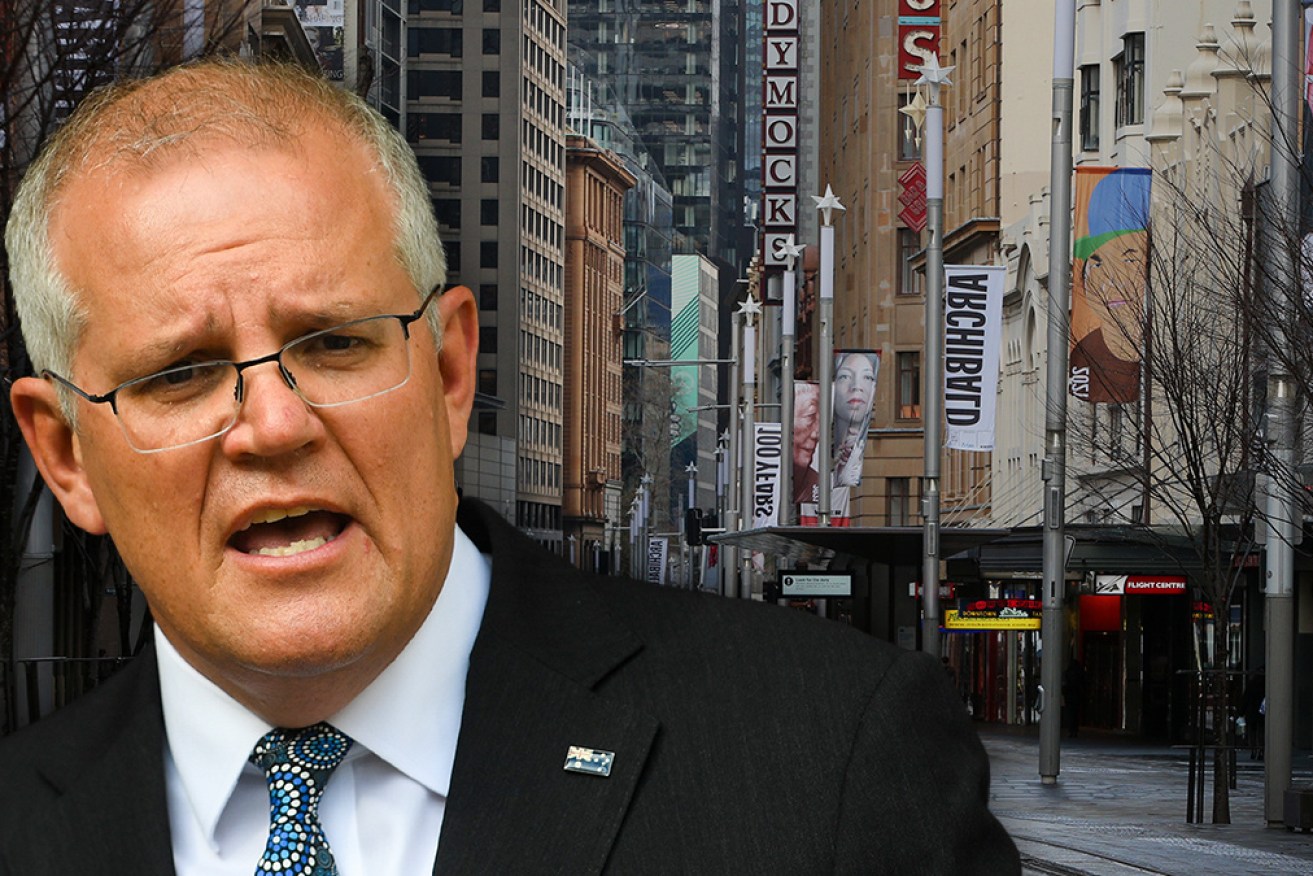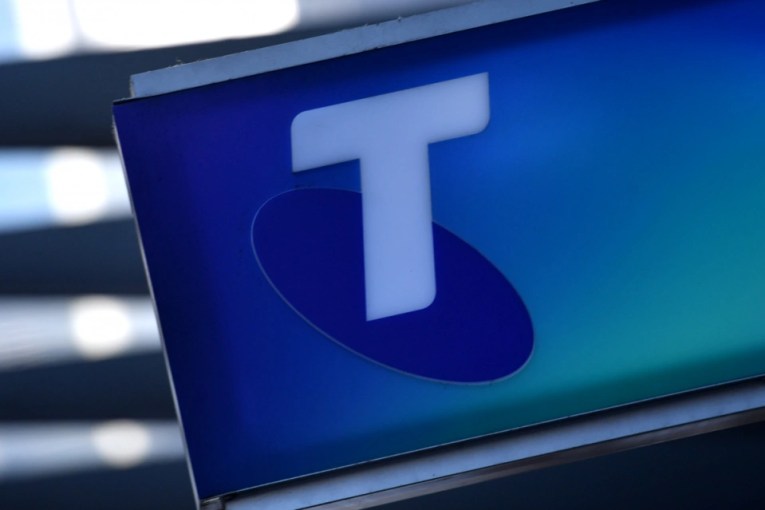‘We’re all tired’: Struggling businesses and sick workers call for government action

Skyrocketing case numbers mean that many businesses don't have enough workers to operate. Photo: TND/Getty
Supermarket shelves are empty as people panic-buy like it’s 2020.
Cafes are closing their doors as staff self-isolate, while people wait hours to get tested and days for the results, or are left to scour chemists for an elusive, expensive rapid antigen test.
Australians may not be in lockdown, but it sure feels that way for some.
With tens of thousands of daily COVID-19 cases, those looking forward to a return to normalcy are instead faced with closed venues, product purchase limits, and being forced out of work with little-to-no financial support from the government.
Even flights were cancelled over the holiday period – not due to snap border closures, but because so many flight attendants and ground crew were sick or isolating.
On Thursday, Victoria announced the reintroduction of density restrictions as cases in the state surpassed 20,000 cases per day.
Customers feel the pinch
As COVID-19 wreaks havoc across Australia, Coles has reintroduced temporary product purchase limits on mince, chicken breasts and thighs, and sausages across all stores nationwide, excluding Western Australia.
A Coles spokesperson told The New Daily that fewer people are available to work in the food manufacturing and transport sectors as more and more close contacts are forced into isolation.
“This has led to disruptions in deliveries from our suppliers, which in turn has resulted in product outages across all departments in our stores,” the spokesperson said.
“While we are working with our suppliers to improve availability, we expect it will be several weeks before we are able to fully recover.”

Record numbers of workers falling ill or becoming close contacts has put strain on supermarkets and their supply chains. Photo: Getty
Coles is also monitoring staff availability as an “increased number” of team members are being required to isolate.
Woolworths is facing similar supply chain issues, particularly across New South Wales and Queensland stores, but isn’t yet reinstating purchase limits on poultry and meat products despite reduced supply.
“While there are more gaps on our shelves than usual, we have enough stock coming through our network for customers to do a family shop,” a Woolworths spokesperson said.
With certain products in short supply in stores, Australians looking to restaurants to fill the gap may be out of luck, as the hospitality industry continues to struggle with staff shortages.
Out of work with no pay
Staffing woes amid spiking COVID-19 and close contact cases have forced several hospitality venues to shut down or alter their operations.
Steve Laubscher, manager of live music venue Max Watt’s in Melbourne, said there has been “huge shortages” of security personnel, as many let their licences lapse during lockdowns and the rest are highly sought after.
To help cope with the shortage, Mr Laubscher obtained his own security licence, and said many venues have applied for new security management plans to be allowed to have less security.
He said other venue staff feel uncomfortable coming to work due to the risk of infection, and long waiting times to get COVID testing results are “devastating”.
Mr Laubscher’s venue will manage to stay open, even with reimposed density limits, but other venues haven’t been so lucky.
Anthony Gist runs three restaurants on Victoria’s Surf Coast: Roku Den, Alisitos and Bird Rock.
All of his restaurants have been hit hard by positive cases and close-contact isolation requirements, which have cut the number of staff from 50 down to about 10 across the three venues.
He was forced to shut Roku Den on Wednesday, Alisitos is only able to offer takeaway, and Bird Rock is “hanging on” with five staff.

COVID testing clinics have been inundated as cases climb, and the long turnaround time for test results is forcing workers to stay home. Photo: Getty
The lack of JobKeeper payments, which officially ended in March, has put everyone in a “far worse” position than during Victoria’s previous record-breaking lockdowns.
“We’re all tired,” Mr Gist said.
“We’ve navigated the last few years, and then [we’ve gotten] to this point with no government backing.
“Hopefully, [the government] sees the severity of the problem and they do step up, but as of right now, there’s no support.”
He said federal and state governments had “brilliant” programs propping up businesses over the past two years, but called on them to step up and help Australians get to the end line.
Although disaster payments were wound back as Australia reopened, Prime Minister Scott Morrison insists some financial assistance is still available.
“I would encourage people to become familiar with the supports that are in place,” Mr Morrison told reporters on Thursday.
Workers smell a RAT
ACTU acting secretary Liam O’Brien told The New Daily the government was pinning the blame on personal responsibility in the absence of substantial government action.
He said the situation across most of the country is “effectively a lockdown now because of Scott Morrison’s incompetence”, with the difference being that people are now getting sick in record numbers.
He slammed disaster payments as being small and difficult to access, but said his main concern for workers and small businesses owners is about a lack of free rapid antigen tests for all.
This is something the ACTU has been calling for since October, and with PCR clinics overwhelmed and experiencing long wait times, they’re more essential than ever for keeping things open.
“It’s all well and good for the Prime Minister to lecture Australians about personal responsibility – he has the safest workplace in the country when it comes to COVID,” Mr O’Brien told The New Daily.
“Him and those around him get taxpayer-funded rapid tests – as he pointed out yesterday – rolled out daily. We just want what he’s got.”
Professor Kerryn Phelps called the current situation “a shambolic mess”.
The former federal MP, former president of the Australian Medical Association and a practising GP, accused the federal and NSW governments of being woefully unprepared to tackle the Omicron wave.
Experts agree that the only ways forward are to watch case numbers – and hospitalisations – climb, or to bring back certain restrictions and roll out free rapid antigen tests for all.
“Time is of the essence,” Mr O’Brien said.
“The quicker he can source and make freely available rapid tests, the safer our workplaces will be, and the less jeopardised our economic recovery will be.”








